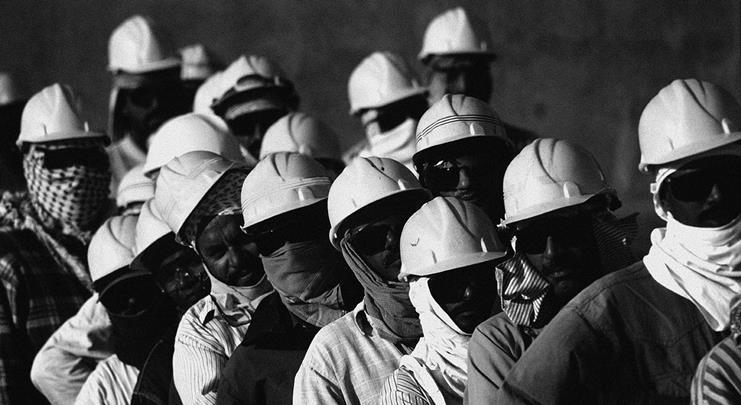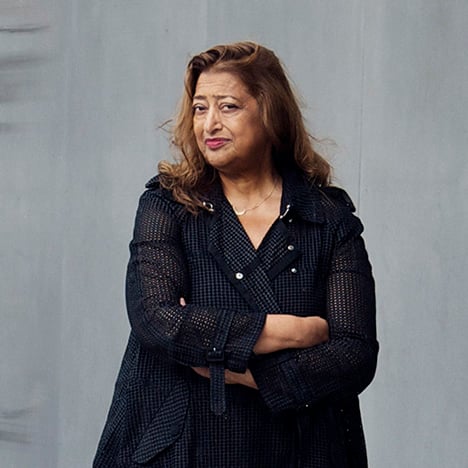Some time back, I used the Bart Simpson
trademark denial of responsibility as the headline of my post about Rafael Viñoly and his apparently disingenuous attitude to the infamous 'Walkie Talkie building' in London, which has been wreaking havoc with
its surroundings. My beef in that post was first the recurring incompetence apparently considered acceptable in the architectural profession, and second the unconscionably cavalier attitude of that particular star architect.
I didn't expect to have to return to the second of those themes quite so soon, and with quite such a grim reason. But recently Zaha Hadid managed to rile me and sadden me, far beyond the usual, as the general plight of migrant workers in the Gulf came into dramatic focus around deaths in Qatar's building industry.
In brief, the deaths of Indian and Nepali workers in the metaphorically and literally overheated construction frenzy of that small country are running at several hundred a year, made worse by the build-up to the World Cup football tournament in 2022. As reported by Dezeen, Zaha Hadid appears to have declared herself not responsible in any way, a declaration apparently made necessary in her mind by the very high visibility of her signature stadium for that event:
The first is ethical, if subjective. If the reporting is to be taken as accurate, Hadid comes across as crass and callous. Her attitude reinforces in the public mind the more general perception of architects as arrogant and uncaring.
The second is objective. Architects are responsible in common law for the buildability of their designs. The London Olympics proudly claims that there was not a single fatality on any of its building sites, and that can be achieved only within regulatory frameworks where there cannot be a disconnect between the design and the construction practices necessary to realize it. This concept has progressed so far in developed nations that in New South Wales, Australia, 'projects have to meet safe design requirements including provision of a safe design report and/or information on how the designer has designed the structure to be without risk to health and safety'.
In Qatar, the deaths are not all from site accidents, they include other causes like heart attacks caused by over-exposure to the extremely hot conditions, and even factors related to insanitary worker accommodation. Commentators have also pointed to the role of governments of the workers' home countries, in as much as the attitudes to worker safety and welfare may be no better back home. The problem is complex, and no single architect should be asked to shoulder the blame, even symbolically. But an estimated 4000 likely deaths by the time the first ball is kicked in 2022 is a horrifying prospect, and one to which there should be more compassionate and proactive responses by architects. As Dezeen reports:
Much of the investigative reporting and commentary has been in the Guardian newspaper. Start here.
For a range of careful but formulaic responses from other UK based major consultants, see this article in Building magazine.
I didn't expect to have to return to the second of those themes quite so soon, and with quite such a grim reason. But recently Zaha Hadid managed to rile me and sadden me, far beyond the usual, as the general plight of migrant workers in the Gulf came into dramatic focus around deaths in Qatar's building industry.
In brief, the deaths of Indian and Nepali workers in the metaphorically and literally overheated construction frenzy of that small country are running at several hundred a year, made worse by the build-up to the World Cup football tournament in 2022. As reported by Dezeen, Zaha Hadid appears to have declared herself not responsible in any way, a declaration apparently made necessary in her mind by the very high visibility of her signature stadium for that event:
"It's not my duty as an architect to look at it," Hadid said yesterday at the reopening for her Olympic aquatics centre in London. "I cannot do anything about it because I have no power to do anything about it. I think it's a problem anywhere in the world. But, as I said, I think there are discrepancies all over the world."It would be silly to over-simplify the issue. Hadid might be driven by some clarity of thought, useful to make clear the attribution of blame between professional consultants involved in the design and documentation of a major project, and unscrupulous construction contractors operating in a politically corrupt environment made worse by culturally entrenched dehumanizing attitudes. It is almost tempting to give her credit for that, and to see her statements as helping to highlight the necessary, if difficult reforms. But only almost tempting. Because she is wrong on at least two counts.
The first is ethical, if subjective. If the reporting is to be taken as accurate, Hadid comes across as crass and callous. Her attitude reinforces in the public mind the more general perception of architects as arrogant and uncaring.
The second is objective. Architects are responsible in common law for the buildability of their designs. The London Olympics proudly claims that there was not a single fatality on any of its building sites, and that can be achieved only within regulatory frameworks where there cannot be a disconnect between the design and the construction practices necessary to realize it. This concept has progressed so far in developed nations that in New South Wales, Australia, 'projects have to meet safe design requirements including provision of a safe design report and/or information on how the designer has designed the structure to be without risk to health and safety'.
In Qatar, the deaths are not all from site accidents, they include other causes like heart attacks caused by over-exposure to the extremely hot conditions, and even factors related to insanitary worker accommodation. Commentators have also pointed to the role of governments of the workers' home countries, in as much as the attitudes to worker safety and welfare may be no better back home. The problem is complex, and no single architect should be asked to shoulder the blame, even symbolically. But an estimated 4000 likely deaths by the time the first ball is kicked in 2022 is a horrifying prospect, and one to which there should be more compassionate and proactive responses by architects. As Dezeen reports:
Other well-known architects have previously spoken out over conditions for workers in foreign nations. Richard Rogers says that “architects have a responsibility to society“, while Daniel Libeskind called on architects to consider whether their projects are “legitimate.”See the Dezeen article here.
Much of the investigative reporting and commentary has been in the Guardian newspaper. Start here.
For a range of careful but formulaic responses from other UK based major consultants, see this article in Building magazine.

